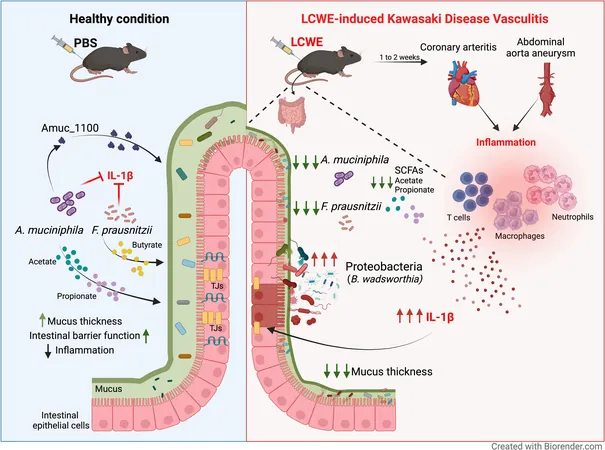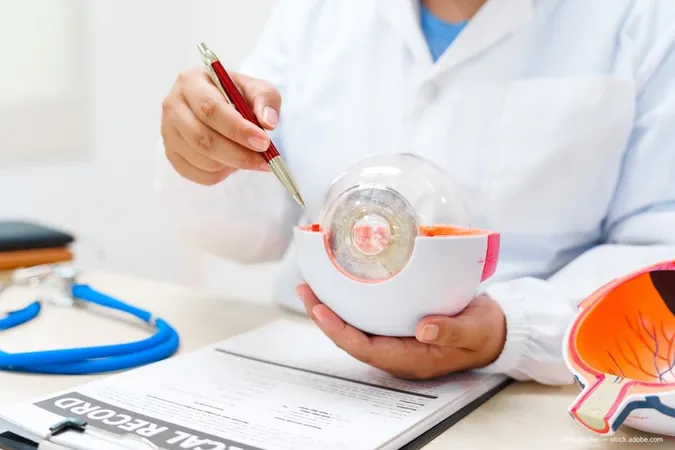
Revolutionary Study Reveals Gut Bacteria's Role in Kawasaki Disease Inflammation
2025-04-10
Author: Siti
International Breakthrough in Kawasaki Disease Research
A groundbreaking study from Cedars-Sinai is shining a light on the mysterious connection between gut bacteria and the inflammation of blood vessels in laboratory mice. These findings could pave the way for innovative treatments for Kawasaki disease, a rare childhood condition known for causing vascular inflammation.
Dr. Magali Noval Rivas, the associate director of the Infectious and Immunological Diseases Research Center at Cedars-Sinai, emphasized the urgency of this research. "Kawasaki disease, while infrequent, is the leading cause of acquired heart disease in children around the world," she stated, highlighting the need for more effective therapies, especially since about 20% of affected children do not respond to the current standard treatment of intravenous immunoglobulin.
A Hidden Threat to Children Under Five
Kawasaki disease affects 18 to 25 out of every 100,000 children under five in the United States. It often starts with a high fever and vasculitis, leading to potential complications such as coronary artery aneurysms in up to 25% of untreated cases.
This recent study seeks to fill a crucial gap in our understanding of the disease's development. Previous investigations showed that children with Kawasaki disease had altered gut microbiota, but it remained unclear whether these changes were a cause or consequence of the condition.
Exciting Findings in Mouse Models
Using an innovative mouse model that simulates the vasculitis observed in Kawasaki patients, the researchers manipulated the gut microbiota. What they discovered was astounding: depleting gut bacteria reduced the severity of Kawasaki vasculitis, while introducing inflammation-promoting bacteria intensified it. Conversely, adding beneficial bacteria or their byproducts resulted in a notable decrease in inflammation.
Dr. Moshe Arditi, the senior author of the study, remarked, "This research uncovers an overlooked link between gut microbiota and the cardiovascular inflammation characteristic of Kawasaki disease. Identifying specific bacteria that influence this condition opens up the possibility for new preventive or therapeutic strategies."
A Call for Further Research
While these findings are promising, Dr. Arditi stressed the need for additional research to validate these results in children and determine the safety and efficacy of potential new treatments. This could redefine how we approach Kawasaki disease, offering hope to countless families.





 Brasil (PT)
Brasil (PT)
 Canada (EN)
Canada (EN)
 Chile (ES)
Chile (ES)
 Česko (CS)
Česko (CS)
 대한민국 (KO)
대한민국 (KO)
 España (ES)
España (ES)
 France (FR)
France (FR)
 Hong Kong (EN)
Hong Kong (EN)
 Italia (IT)
Italia (IT)
 日本 (JA)
日本 (JA)
 Magyarország (HU)
Magyarország (HU)
 Norge (NO)
Norge (NO)
 Polska (PL)
Polska (PL)
 Schweiz (DE)
Schweiz (DE)
 Singapore (EN)
Singapore (EN)
 Sverige (SV)
Sverige (SV)
 Suomi (FI)
Suomi (FI)
 Türkiye (TR)
Türkiye (TR)
 الإمارات العربية المتحدة (AR)
الإمارات العربية المتحدة (AR)